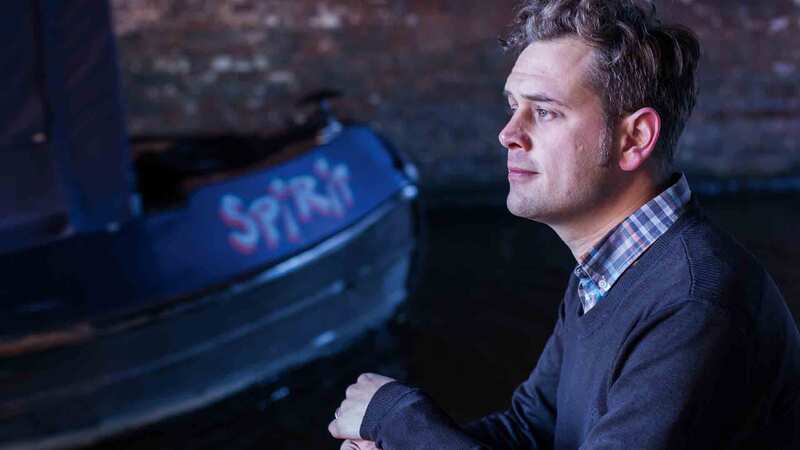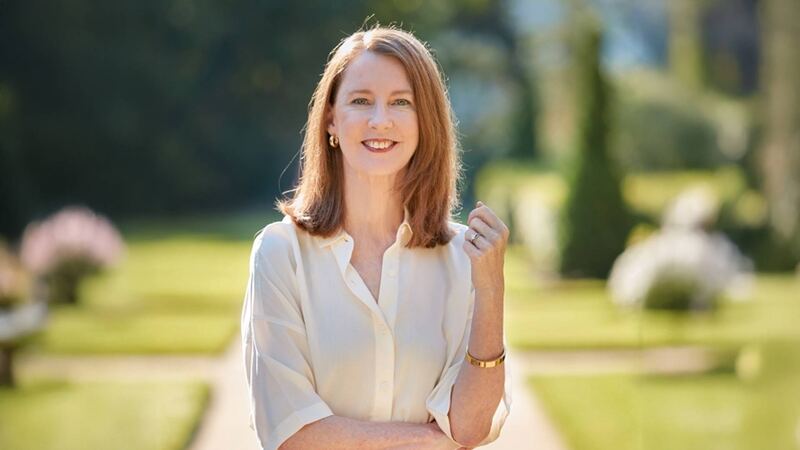You are viewing your 1 free article this month. Login to read more articles.
The ghosts of Helen Dunmore's Past
Writer Helen Dunmore has taken a break from penning literary novels such as The Siege and The Betrayal to turn her hand to a ghost story novella.
The Greatcoat is set in the early 1950s. A young, newly married couple are trying to settle into their life together in a rather dreary rented flat one winter. The bride, Isabel, is uncomfortable in her new home, as well as lonely, with her doctor husband working long hours trying to establish a new practice.
One freezing night, she finds a heavy old RAF greatcoat tucked away in a hidden corner of the apartment and heaves it over her bed to keep warm. Not long afterwards, a visitor comes knocking on her door; a young man, an Air Force pilot, with navy blue eyes. There is something compelling about him and, though a stranger, mysteriously he seems to know her. Slowly, over the following weeks, as her visitor continues to come and go, Isabel is drawn closer and closer to him and further away from the prosaic reality of daily life with her husband.
In Dunmore’s skilled hands, The Greatcoat becomes not just an absorbing story of ghostly possession, but also a tale of the damage done by wartime and of the long trajectory of personal tragedy. The young airman is indeed a creature from the past; and his tale is that of a life brutally cut short, leaving a trail of unresolved shock and pain behind it.
“I set it in the year of my birth, 1952," Dunmore says, "and I think it was an interesting era – a great emphasis on building up the national health, a guarded optimism but no material plenty, enormous changes and reverberations of the war still being felt. I wanted it to be a very physical story so everything in it feels very real – the cold and the discomfort – coal is still rationed, people are living in cramped conditions and there’s a shortage of nice things everywhere. Yet people have the same passions and desires, perhaps burning more brightly in the sombre surroundings.”
Henry James was one inspiration, and another was Emily Bronte. “One of the things that I like about Wuthering Heights is that there are points where you don’t know what’s real and what’s not, and there are ghosts in there – when Lockwood hears the little Cathy wanting to come in [at the window]. It’s a marvellous and very interesting thing when a realist novel encompasses the supernatural as well.”
Ghost stories often work with a character coming to a new place or a new house, she says. In The Greatcoat, the characters all have a sense of displacement – the young couple not long married and barely really knowing one another, and Isabel feeling stranded and alone in her new home. “The ghost can come because she’s ready for him, she’s in the right place, she has the right need. The past can enter because she isn’t strong enough to prevent it.”
The battle for Isabel, is to understand what’s real and what isn’t, as she falls more and more deeply under the airman’s spell, and the present becomes increasingly overlaid by the past. “I wanted to get that sense where you think you are standing on solid ground, but it’s beginning to move and are you going to fall into a kind of chasm?” says Dunmore.
The greatcoat itself – the relic from the past which summons the ghost – has a vivid reality because it comes from a childhood memory. Dunmore’s father was in the RAF and she and her sister used as small children to sleep in a big double bed. “On cold nights we used to put my father’s RAF greatcoat over us, and I remember exactly what the feel was like, the weight of it. That was something that was very real to me. Often a story does begin with something you really, really know.”
The Greatcoat is out 2 February, published by Hammer.















